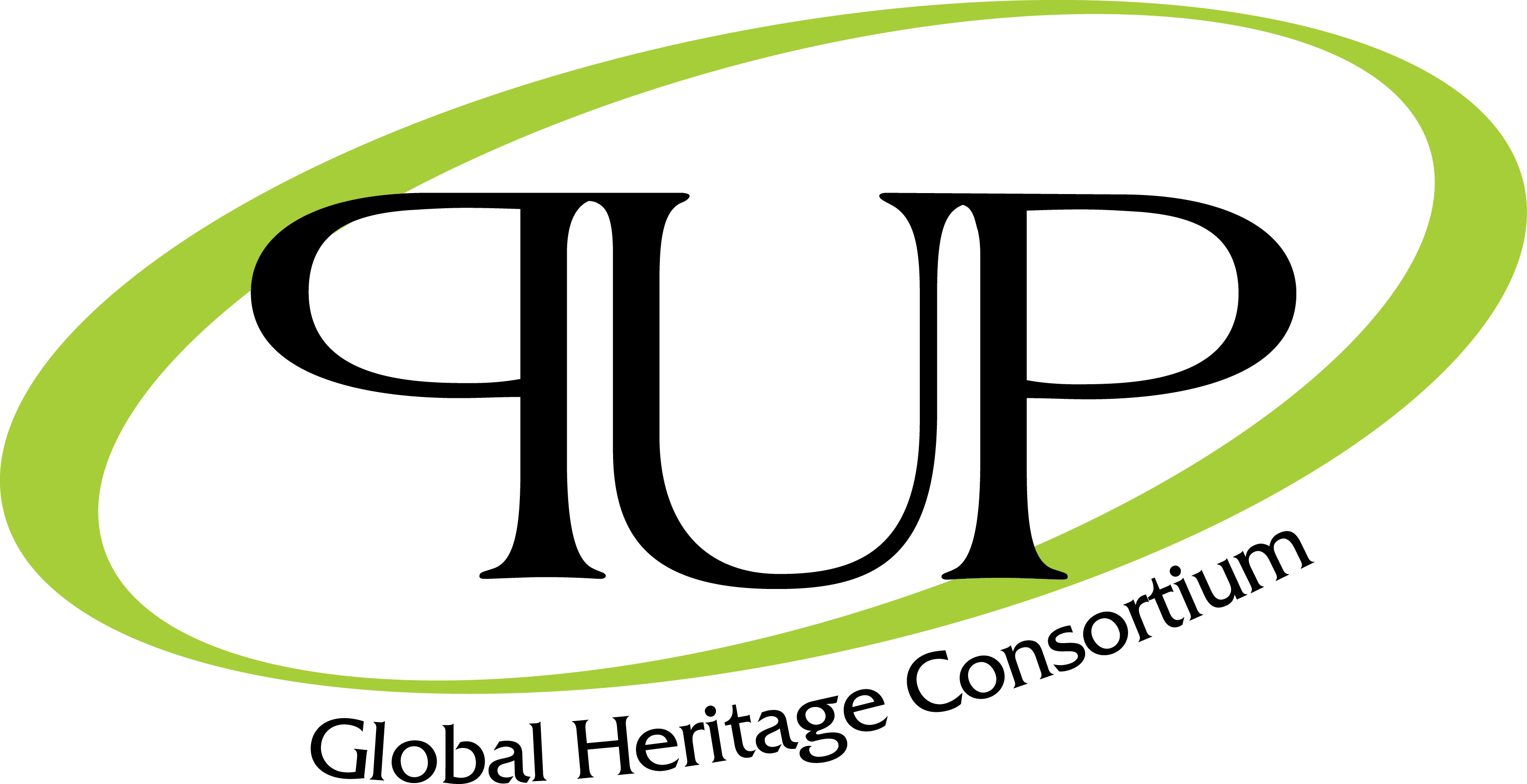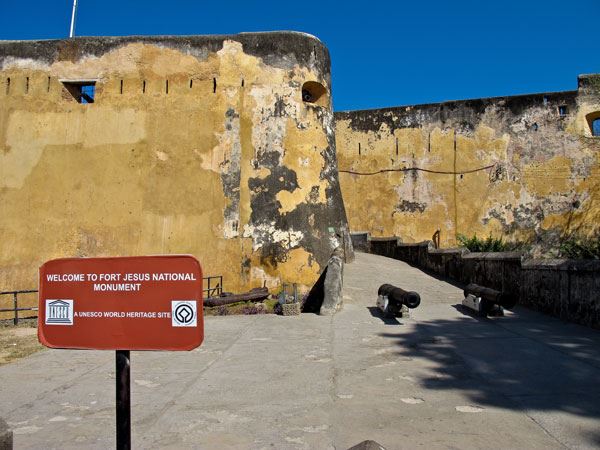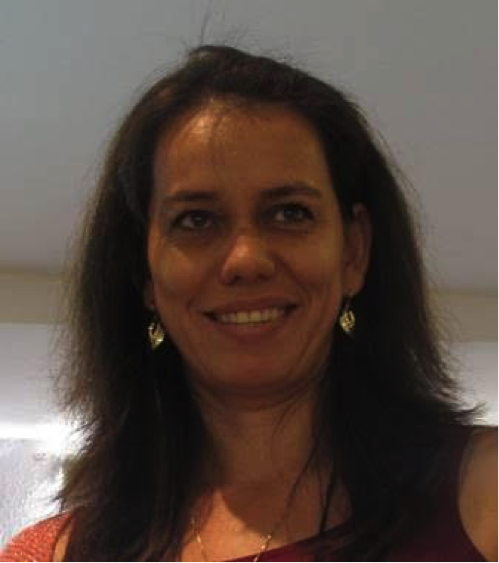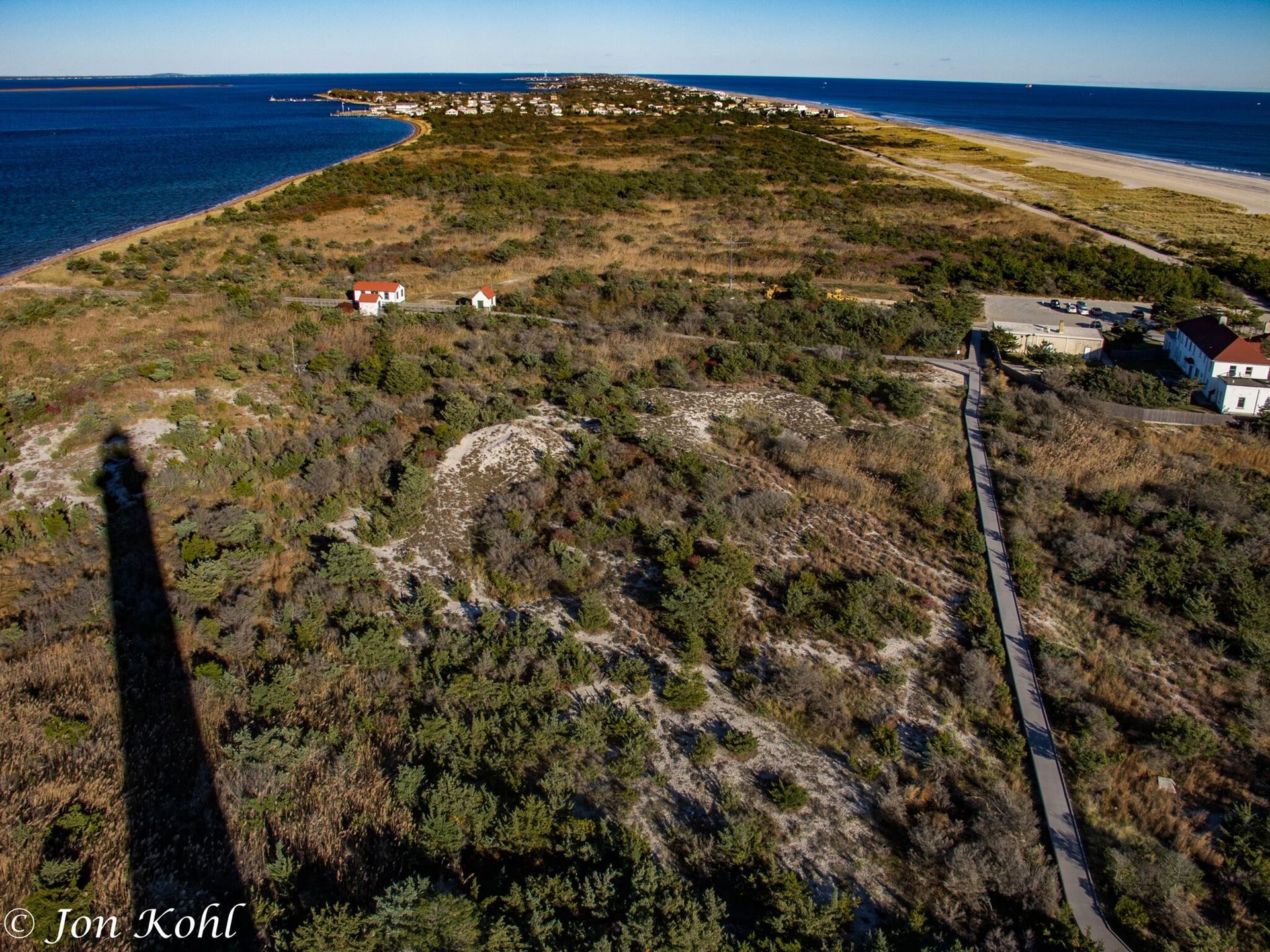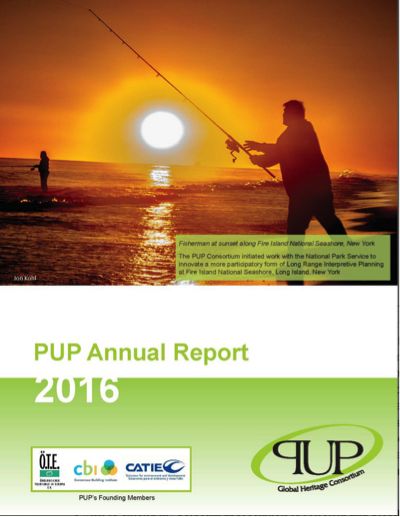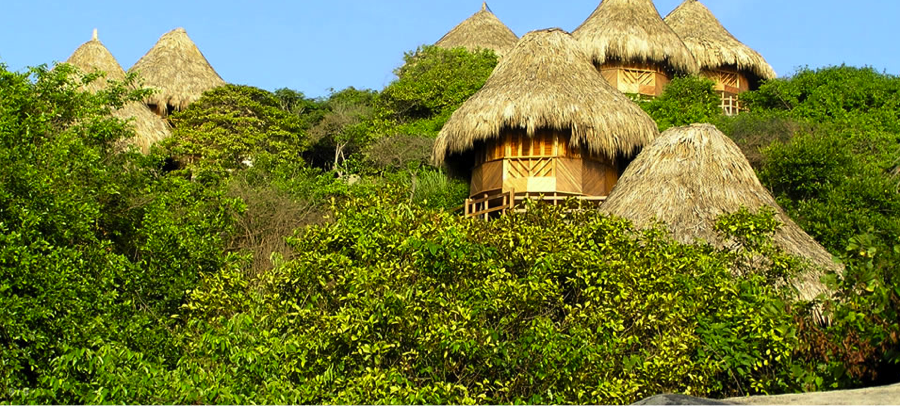| Advancing Integral Heritage Management |
|
Safety in Numbers: PUP Launches General Membership to Help Open Doors
After the PUP Program and PUP founder Jon Kohl left RARE Center for Tropical Conservation in 2003, it eventually became an ad hoc program of the Sustainable Tourism Program of UNESCO’s World Heritage Center from 2006 until 2012. With UNESCO, PUP traveled around the world and tested its approach under many cultural and linguistic conditions. Clearly UNESCO opened many doors and provided opportunities which any other way would never have materialized. When PUP left UNESCO to become its own organization in 2013, it no longer had that power to open doors. And since the PUP Process varies greatly from the conventional establishment of the world’s leading heritage organizations and most practitioners, it needed a new way to open doors and give confidence to those who weren’t sure if they wanted to risk trying something new and outside of the box, so PUP became a membership organization. The logic was that with more voices and some prestigious names among its membership, it would provide that sense of confidence necessary to find opportunities to experiment with the emerging paradigms that tempted many but also gave them fear since new paradigms don’t come with the same incentives and rewards that conventional systems convey. Thus between 2013 and 2016, PUP had an internal membership by invitation only: advisors, PUP facilitators, technical service members, and staff. In 2016 PUP added board directors and changed PUP facilitators into country representatives. In 2017 PUP launched its general membership category. General members can join without invitation, simply by registering online and paying $30. They receive various benefits including our internal newsletter, access to other PUP members through a members-only directory, involvement in some kinds of PUP discussions, discounts on PUP sales (such as the webinars which has just been implemented), and other benefits to come. See press release on our first general member. PUP hopes that not only will its general members participate with more than just their money, that their very numbers will help to open up new doors and opportunities for the PUP Consortium to transform the global paradigm in heritage planning and management. PUP Profile: Darko Babić
Dr. Darko Babić, Assistant Professor at the University of Zagreb, Croatia, and Director on PUP Board, has dedicated himself to heritage, its management and interpretation. As a child, Darko was extremely interested in our world’s heritage, always close to books describing the world’s natural and historical wonders. Darko received his MA in Ethnology and Information Sciences/Museum Studies at the University of Zagreb and after working in the field for several years he now acts as Chair of Museology and Heritage Management at his home institution. Aside from teaching and researching, he works as a consultant for national and international heritage projects, organizes museum and heritage conferences, plans exhibitions, and assists the archives department of the Croatian National TV. Through his work, Darko has become fascinated by the importance of interaction between people, particularly within the local stakeholder communities, and their heritage. Currently Darko is leading a heritage interpretation project at Jankovic Castle in the south of Croatia. The University of Zagreb is partnering with the private owner of the castle to set up a museum, addressing inter-culturalism, and a branch of the university within castle walls. While work at the castle moves efficiently, the people who live nearby do not have electricity or plumbing and their land still contains undetonated landmines from the 1990s civil war. To Darko, while it is important to save and promote heritage, we must consider human priorities first. For projects like Jankovic Castle, and for many other similar plans around the world, we must foremost respect the needs of local people within heritage management and interpretation efforts. When we consider heritage management and interpretation, we should begin and end with the question: how will it benefit local communities, the real owners of heritage? Darko’s PhD dissertation was based on museum studies and focused on heritage literacy, the idea that every individual, no matter where in the world, has a right to be a real owner of their heritage and has the right to say how it will be developed, preserved, and interpreted or managed. This critical approach to how we see and interact with heritage, not just on a universal level through UNESCO grants, but also on a local level, is the foundation for Darko’s current research. Beside his regular duties at the university, Darko serves on the Supervisory Committee of the European Association for Heritage Interpretation as Chair of the International Committee on Training of Museum Persons (ICTOP) with the International Council of Museums (ICOM), and has contributed as both leader and partner to several projects funded by the European Commission addressing how local people can take advantage of their heritage. Aside from working as an Assistant Professor, Darko consults on a variety of heritage projects in and out of Croatia, e.g. from assisting local museums in the beginning stages of planning and conception, to consulting with larger institutions on promotion and public relations. Darko met Jon Kohl, PUP Director, for the first time in the Summer 2013 in Sigtuna, Sweden for an annual conference on heritage interpretation and, as PUP Director, participates in Board meeting on the development of the PUP Global Heritage Consortium. Darko would love to join future PUP projects as a field consultant, especially in Southeastern and Eastern Europe, or around the Mediterranean where his family originates. As Darko says, the idea of heritage is universal; we simply must adopt it to a local scale. PUP Launches Spanish Interpretation Webinar Series throughout Latin America
If you’re an interpreter in Latin America, you probably feel isolated from other interpreters and from the field as a whole. Your boss may not even believe that field exists or that it is simply environmental education. You don’t have access to regular training in the field and if you have any resources at all — such as an association, manual, or periodical — they come from a developed country and may not be all that appropriate for your country or site. Given those limitations, the PUP Consortium signed an agreement with the National Association of Interpretation (the largest interpretation association in the world, based in the US) as well as CATIE, a post-graduate natural resource management university with 13 Latin American country members, based in Costa Rica. We have assembled our first five webinars on various themes related to interpretation:
All of these initial speakers are members in one capacity or another of the PUP Consortium. This is a new venture. We feel there is strong interest but we have to figure out the best times, prices, and methods of payment. Our audience is very different from the American audience where NAI has been offering webinars for years. In fact, as part of the agreement, NAI provides the online platform and training while PUP recruits and manages the webinars. Our hope is that people realize that their attendance does not just benefit them or us, but helps to establish an entirely new opportunity for interpreters and guides throughout the Spanish-speaking world. We would like to recognize especially Adriana Zúñiga who is a photographer and multi-media specialist as well as our first webinar coordinator. She is based in Costa Rica. To see the webinars, please visit www.pupconsortium.net/webinarios and sign up if you speak Spanish! Member SpotlightMaria Antonieta Jiménez, PhD
I am an archaeologist and I have a PhD in Anthropology. I have two main areas of interest, all related to conservation and research in cultural heritage. The first area is about heritage interpretation (with more experience in interpreting the archaeological heritage and some projects in historical interpretation). In this area, I have done some projects in Mexico and overseas, as well as research and published articles, book chapters, and a book to be published later this year. The title of the book isCompartiendo el tesoro. Guía para divulgar la arqueología, Colmich 2017 in press, ("Sharing Treasure, A Guide to Archaeological Interpretation”). My second area of interest is in community archeology. I did a five-year research project on this topic and, and apart from my doctoral degree, a book published in 2016: La vinculación social en arqueología. Planeación del impacto social de un proyecto arqueológico, Colmich, 2016, México, ("Social engagement in archeology, a plan for a better relationship between people and their heritage"). Today I work as a professor and researcher in an Archeology Department of a social sciences institution called El Colegio de Michoacán in western Mexico. Dr. Jiménez has membership in the following organizations: National Council of Science and Technology, The Heritage Interpretation Association (United Kingdom), Interpret Europe, and is on the Editorial Committee of "Intervention", an International Journal of Conservation, Restoration and Museography of the National School of Conservation, Restoration and Museography, and of course, the PUP Global Heritage Consortium.
Hello! I am the newly appointed PUP Staff Writer. I graduated in May 2016 from Wesleyan University with a Bachelor’s degree in archaeology and anthropology and an Honors thesis titled, “Grave Concerns: The Sacred Corpse and Burial Re-Entry in Antiquity.” After working in museums and excavation, as well as in teaching and outreach, I’m interested in heritage interpretation and preservation, particularly in how it benefits local communities. I’m extremely excited to help support PUP’s mission. I’m currently teaching at an international school in Japan but seeking a position in a museum, heritage agency, or NGO, and am considering various graduate programs. Bill Hochsin I have spent my life working to reduce the volume and toxicity of waste. I have established many recycling programs and won the best collegiate recycling program in the country in 1991. I established the first compost "machine" and aerated bed facility that has composted the organic waste from Dartmouth College and Dartmouth Hitchcock Medical Center for the past 10 years. I established the Integrated Pest Management Council that oversaw the use of any pesticide or herbicide application on Dartmouth property. I wrote and got accepted a one page Dartmouth Disposal Policy that still serves to direct all disposition of materials. I have served on many not for profit boards of directors and have helped to establish and create many local and regional not for profit service corporations including: Woodstock Learning Clinic, Windsor County Partners, Windsor County Court Diversion, Health Care and Rehabilitation Services, and Northeast Resource Recovery Association. All of these organizations are still in business and providing services today except the Learning Clinic which became redundant when we got special education legislation passed to mainstream all of the kids, "All Children Matter" campaign. While working as the Materials Manager for Dartmouth, I also helped to establish the Organic Farm and the Resource Working Group. I was awarded a "Stewardship" award from the State of NH having been nominated by the President of Dartmouth and later given the rare distinction for staff members of "Emeritus " status and will forever be a member of the Dartmouth family. I retired recently but have kept active with my start up electronic recycling and refurbishing company, "Wincycle" (www.wincycle.org). My wife and I own 268 acres of Vermont forest/farm land and have been working since 1999 to be sure it is organic and pesticide free. I am also staying busy with our local Rotary Club service projects but mostly I am spending as much time as possible with my four grand children, now that I'm in my 70th year. | The PUP MissionThe PUP Global Heritage Consortium unites people and organizations dedicated to introducing emerging paradigms about management and planning into the heritage management field in order to stem the tide of non-implemented natural and cultural heritage management plans and transition to a more holistic, Integral management approach. Ultimately this approach improves the conservation of biological and cultural diversity. Jon's Book Tour
Over the last few months PUP Director Jon Kohl has begun marketing his and Dr. McCool’s The Future Has Other Plans: Planning Holistically to Conserve Natural and Cultural History. The book tour began while Jon was working with the Fire Island National Seashore of the US National Park Service and officially started his tour in New York City at the Bronx Zoo. The Bronx Zoo presentation, organized by Jeremy Radachowki, Director of Mesoamerica and Caribbean Programs, as well as an advisor to PUP Consortium, was given to 40 people, half of whom work for the Wildlife Conservation Society, the other half representing the Fire Island National Seashore. Jon then traveled to Stonybrook University where he personally sold the first copy of the book! Following this, Jon gave presentations at the Yale University School of Forestry and Environmental Studies, the National Park Service Office in Boston, Dartmouth College, and the University of New Hampshire. The Future Has Other Plans has reached audiences far beyond heritage managers, and is provoking thought and discussion among those who specialize in resource management, as well as those who are simply part of affected local communities. The Tropical Research Institute sponsored Jon’s presentation at Yale and the Rockefeller Center for Public Policy and the Environmental Studies Department co-sponsored his talk at Dartmouth. Jon’s audiences have consisted of National Parks employees, academics, students, as well as community stakeholders. As the people who came to the lectures ruminate over ideas presented in the tour and the book, we will see what new developments and connections arise. According to Dr. David Burdick, Interim Director of the Jackson Estuarine Lab at the University of New Hampshire, “Your book is excellent. I have read through most of it – couldn’t put it down.” Updates: PUP Works with the US National Park Service
Fire Island National Seashore, New York. Since last October PUP and its member the Consensus Building Institute have been working with the staff of the Fire Island National Seashore (featured above) to create a Visitor Experience Plan, a modified concept of the traditional Long-Range Interpretive Plan. It places more emphasis on working with the community, developing an implementation team, and implementing the plan than the traditionally formatted, consultant-driven plans of old. Principal PUP actors involved: Jon Kohl (PUP Coordinator) and Stacie Smith (senior mediator, Consensus Building Institute). This park was featured on the cover of our recently published 2016 annual report.
Tayrona National Natural Park, Colombia The Colombia National Parks has an agreement with the US National Park Service and Fundación ICCF Colombia to create a Long Range Interpretive Plan for the second most visited park in Colombia (pictured below). The project may also include help in creating a visitor center. Given that PUP and OpEPA, its national office partner, have been involved in facilitating an interpretive framework for El Cocuy National Park in 2012, we are participating in the week-long workshop to create this framework which serves as the basis for other components in the plan. An interpretive framework is an organized presentation of the park’s heritage, interpretive themes, universal processes that created and continue to shape the park, and its essence, the most basic ingredients necessary to interpret a site for visitors. Jon’s Blog: Nature and cultural heritage are one and the sameThere has been only one universe and one process of evolution, yet many human specialties divide it up. Interpret Europe needs clarity in its understanding of heritage to avoid erroneous assumptions. |

